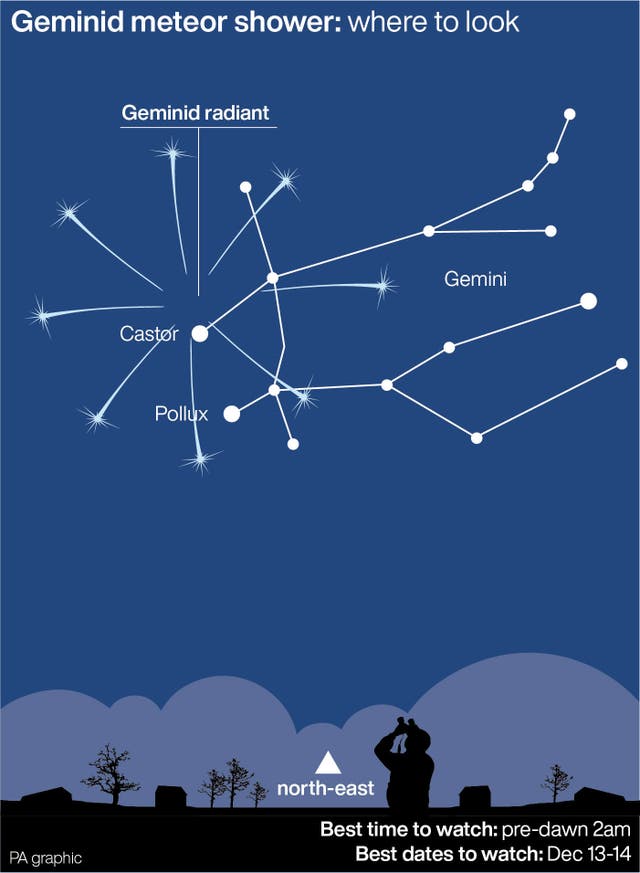Geminid meteor shower set to illuminate night skies
There may be as many as 70 shooting stars an hour during peak time.

Night-time sky-watchers can look forward to a celestial display of shooting stars on Sunday night, as the Earth passes through a cloud of cometary dust.
The Geminid meteor shower, which returns every December, is expected to peak some time during the night of December 13 and will be visible until the early morning of December 14.
An absent moon will ensure that the meteors, which are widely regarded as the most impressive of the year, stand out brightly as they streak across the sky, with as many as 70 an hour.
The Geminids originate from a rocky asteroid called 3200 Phaethon with a comet-like orbit, and were first observed in 1862.
The meteors, small pieces of interplanetary debris, appear to radiate from near the bright star Castor in the constellation Gemini.
Friction with the upper atmosphere heats up the incoming debris, causing the air around them to glow brightly.

This leads to streaks of light that are also known as shooting stars.
According to the Royal Observatory in Greenwich, the Geminids are unusual as they can be multi-coloured – mainly white, some yellow and a few green, red and blue.
These colours are partly caused by the presence of traces of metals like sodium and calcium, the same effect that is used to make fireworks colourful, experts at the Royal Observatory said.
The Geminids also have a slower closing speed than many other comets as they enter Earth’s atmosphere at an angle, travelling at about 79,200mph.
In comparison, the Perseids approach Earth at 133,200mph and the Leonids at 162,000mph.
To see the shower, observers should look upwards after 10pm UK time on Sunday, when the radiant will be high in the south-eastern sky, experts at the Royal Astronomical Society said.
The best views are always away from city lights, but with a clear sky even urban skywatchers should see at least a few meteors, they added.
The showers will continue to be visible until December 17.





